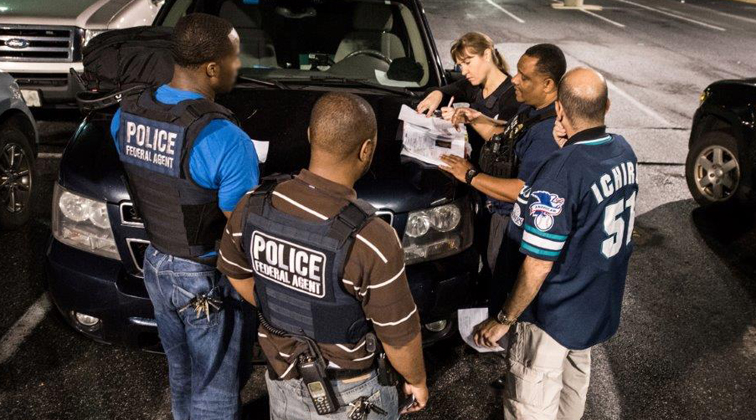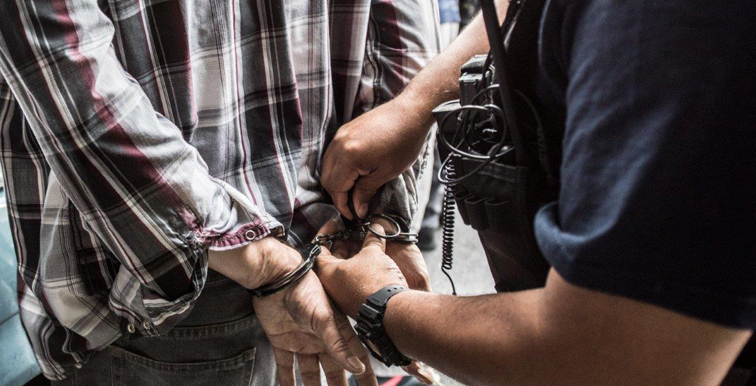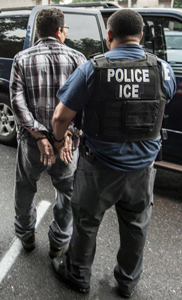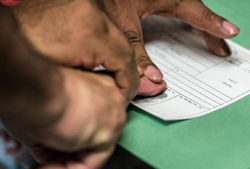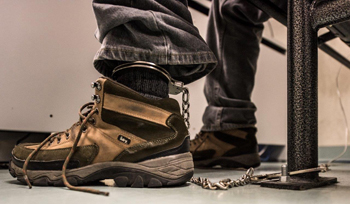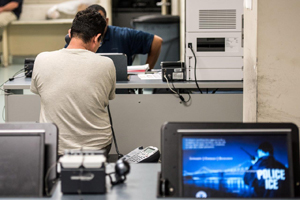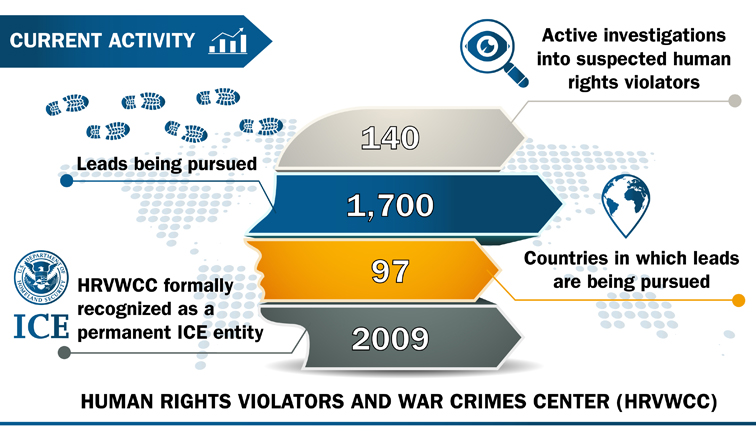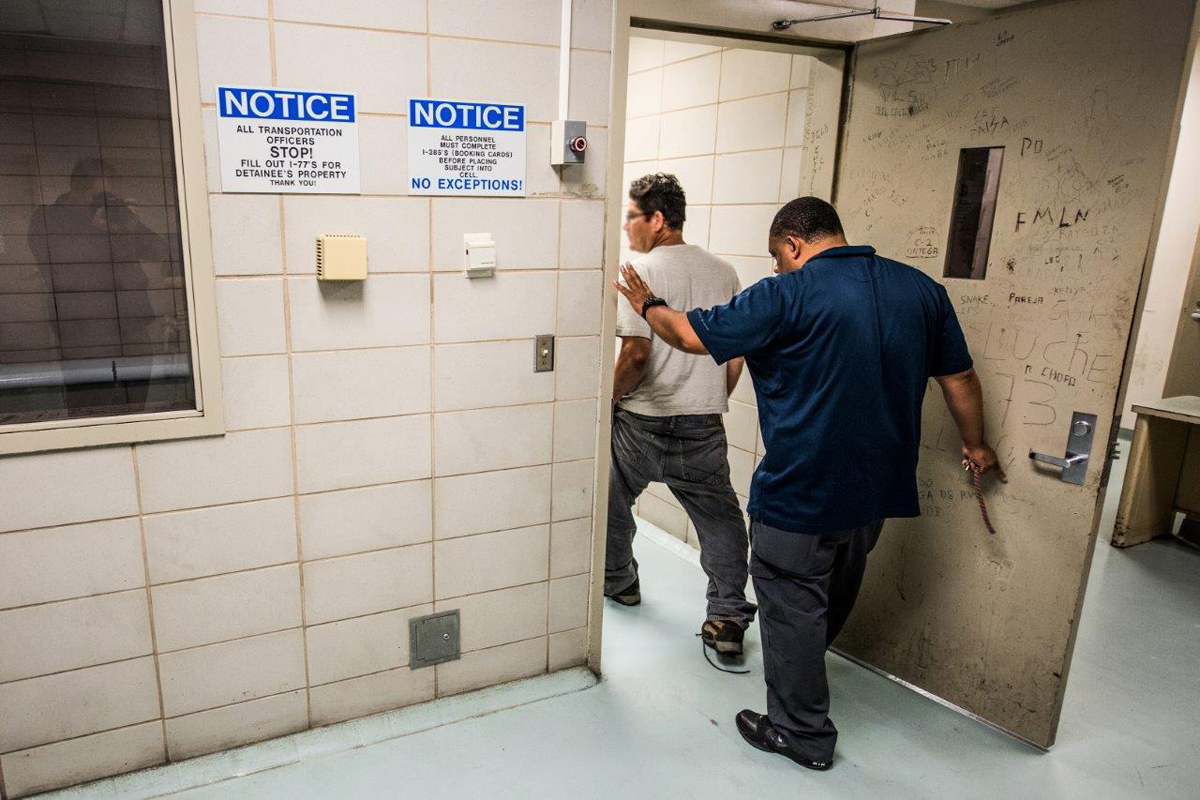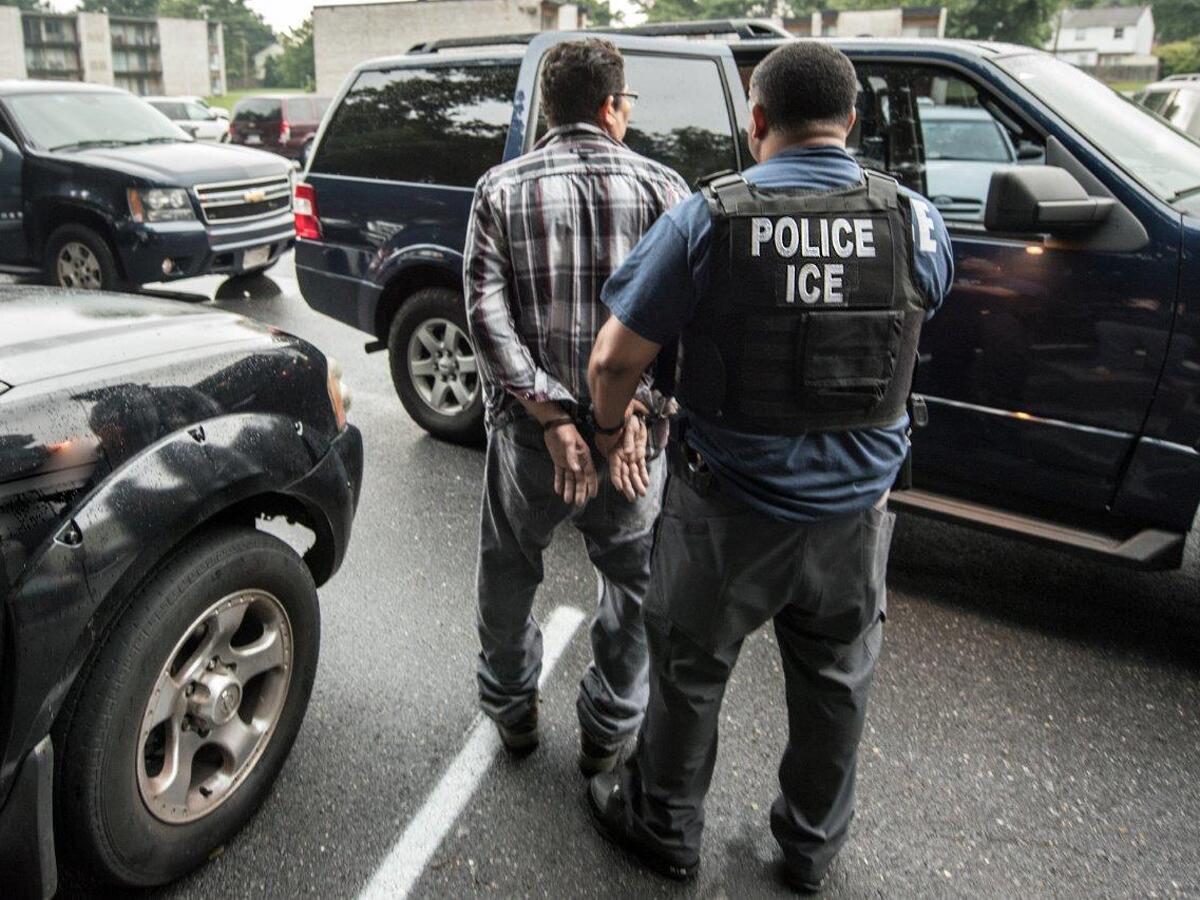
Among the ideals upon which the United States of America was founded, and has thrived for nearly 250 years, is the understanding that no individual is above the law and all are equally protected by those who have sworn an oath to uphold it.
This fundamental belief also holds accountable human rights violators who have committed crimes against humanity around the world and have attempted to evade justice in their own countries by living secret lives here in the United States.
As the federal law enforcement organization with the broadest international authorities, ICE established in 2008 a team responsible for leading the long and difficult investigations into human rights violators and other war criminals who enter the United States.
Part I: ICE arrests 36 fugitives across US during Operation Safe Nation and Operation No Safe Haven III
Currently Reading Part II: Seeking Justice for Victims around the World
Part III: Senior Historian for Human Rights Violators and War Crimes Unit has unique hobbyThe Human Rights Violators and War Crimes Center (HRVWCC) began as a pilot project in April 2008. Underscoring a whole-of-government approach to bringing these criminals to justice, the Center co-locates a select group of special agents, attorneys, criminal research specialists and historians. It also brings together resources and expertise from various DHS components and other departmental agencies, to include the FBI’s International Human Rights Unit and the Department of State, to work collaboratively on human rights violators and war crimes investigations. With bona fide successes supporting this crucial concept, the Center was formally recognized as a permanent ICE entity in October 2009.
The HRVWCC uses a variety of sources and methods to identify human rights abusers living in the United States or attempting to enter the United States. The Center works with international and national tribunals, foreign law enforcement partners, and INTERPOL to develop lead information. Non-governmental organizations and academics play a critical role in assisting ICE in locating and supporting witnesses, and in contextualizing conflicts so that judges and juries can understand the role the alleged perpetrators played in human rights violations.
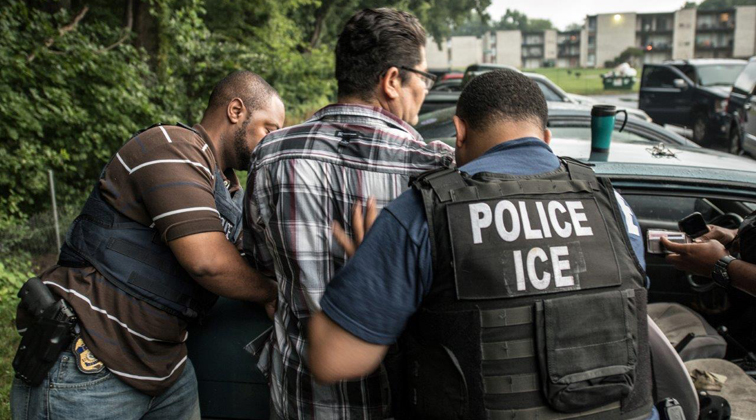
Recently, a former member of the Guatemalan army, whom witnesses say participated in the Dos Erres massacre which claimed more than 200 lives in December 1982, was returned to his country. His case was the fourth investigation initiated by the HRVWCC involving participants in the Dos Erres massacre.
“We owe it to all victims of war crimes and human rights abuses around the world, and to their families, to use every resource at our disposal to ensure the U.S. is not a safe haven for those involved in such atrocities.”
A recently completed documentary film titled “Finding Oscar” highlights ICE’s work investigating one of the human rights violators who participated in the Dos Erres massacre.
Cases like this are developed and investigated through ICE’s No Safe Haven initiative. Many individuals fleeing wars, genocide, ethnic cleansing and various other forms of persecution see the United States as a safe place for themselves and their families. Upon entry, the vast majority of these people choose to remain here permanently and, ultimately, gain citizenship through the naturalization process.
Unfortunately, individuals who have perpetrated significant abuses against others in their home countries are also coming to America seeking to evade potential prosecution and punishment. These individuals frequently hide among those they once persecuted, falsely claiming to be victims of abuse. They may be former officials of regimes that are or were potentially hostile to our nation and its interests, making them not only human-rights violators, but also national security threats. ICE’s No Safe Haven initiative targets these individuals.
For example, ICE’s National Fugitive Operations Program recently completed its third coordinated, nationwide enforcement action targeting fugitives sought for their roles in known or suspected human rights violations. All those arrested during Operation No Safe Haven have outstanding removal orders and are subject to repatriation, including a citizen of West Africa implicated in human rights atrocities as a member of a revolutionary group that engaged in the murder of women and children and an individual from Asia who performed forced sterilizations upon several female victims. The results of this most recent enforcement action bring to 88 the number of suspected human rights violators and war criminals arrested through Operation No Safe Haven.
Efforts through the No Safe Haven initiative send a clear message to those accused of human rights violations that, regardless of the amount of time that has passed, or the distance they have traveled, they cannot escape justice by hiding in the United States. ICE is committed to keeping the nation safe by identifying, investigating, prosecuting and removing human rights abusers and war criminals who enter the United States.
Since fiscal year 2004, ICE has arrested more than 375 individuals for human rights-related violations of the law under various criminal and/or immigration statutes. During that same period, ICE obtained deportation orders for and physically removed more than 815 known or suspected human rights violators from the United States.
Currently, ICE has more than 140 active investigations into suspected human rights violators and is pursuing more than 1,700 leads and removal cases involving suspected human rights violators from 97 different countries. Over the last four years, the HRVWCC has issued more than 70,000 lookouts for individuals from more than 110 countries and stopped 194 human rights violators and war crimes suspects from entering the United States.
The public is encouraged to call the ICE tip line at 866-DHS-2-ICE with any information regarding foreign nationals suspected of engaging in human rights abusers or war crimes.
